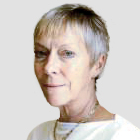 source: Guradian newspaperSudan's drumbeat of dissatisfactionAs April's election approaches, we should pay more attention to growing Sudanese concern over moves to silence dissent
source: Guradian newspaperSudan's drumbeat of dissatisfactionAs April's election approaches, we should pay more attention to growing Sudanese concern over moves to silence dissent
Julie Flint guardian.co.uk, Monday 22 March 2010 12.00 GMT Article historyOn 15 March, the day before the Guardian published a report headlined An African success story in Sudan, government security agents seized an 18-year-old student active in the
Girifna movement in Khartoum. The student, Abdalla Mahdi, was beaten with sticks, hoses and electric wires, subjected to a mock execution, threatened with death by a lethal virus, and interrogated about Girifna's activities and funders.
Girifna, Arabic for "we are fed up", was started late last year by young Sudanese demanding that next month's elections, the country's first multi-party ballot since 1986, be free and fair. They are using Facebook to try to collect a million signatures opposing a national security law, which many Sudanese believe is being used to limit political and civic rights and silence voices of dissent during the election campaign. And not just Sudanese. Human Rights Watch said this weekend that the Khartoum government (and the autonomous southern government in Juba) "are violating rights and restricting freedoms critical to a fair poll, including freedoms of expression and of assembly".
The Carter Centre said that because of laws that contravene Sudan's constitutional protections, the elections remain "at risk on multiple fronts including the ability of the candidates to campaign freely". Dmitry Titov, an assistant secretary-general in the UN peacekeeping department, singled out the national security law. He told the security council last month that the law "allows government security services to detain persons without cause" and demanded that it be revised or suspended before voting begins on 11 April.
President Omar al Bashir's National Congress Party (NCP) has refused to suspend the law, claiming the need to keep al-Qaida suspects in detention, but has said it will not use it against legitimate political activity. This claim rings hollow to Sudanese with 21 years' experience of the security services that are the cornerstone of the NCP's power – especially after the death of Mohamed Musa, a Darfurian student activist who was apprehended in February at the gates of Khartoum University and killed. Friends who saw his body, alerted by an anonymous telephone caller, said it was beaten and burned. Police refused to give his family a copy of the morgue report.
Abdalla Mahdi told a press conference in Khartoum last week that the men who beat him, in a room decorated with pictures of Salah Gosh, former director of the National Intelligence and Security Services (NISS), showed him a photograph of Mohamed Musa and told him it was they who killed him.
Sudanese wanting genuine democratic transformation – not merely holding elections this year and a referendum on southern self-determination next year, as required by the Comprehensive Peace Agreement (CPA) that ended the north-south war – would, I think, disagree with the Guardian's suggestion that the election campaign is "proceeding smoothly". Perhaps we should be paying more attention to Sudanese voices? Like the African Centre for Justice and Peace Studies, which says "Sudanese authorities have systematically targeted any activities, symposia, public rallies or lectures related to the elections". Or the writer who argues that the "ultimate goal" of laws like the security law is to silence those who dare to dissent. Or Mohamed Suliman, director of the Institute for African Alternatives, who told a meeting in the House of Commons recently that "Khartoum knows it can get away with murder, as long as it does not touch the referendum"..
With less than three weeks remaining before voting begins, the drumbeat of dissatisfaction is increasing steadily, especially in the north. Seventeen parties today submitted a memorandum to the presidency demanding a postponement of the elections until November to allow for major reforms in a number of laws relating primarily to national security and media.
The parties are increasingly unhappy at what they see as disproportionate media coverage of President Bashir's re-election campaign. They say the census and election registration processes were deeply flawed and that in some areas, particularly Darfur, the failure to register the displaced casts doubt on the legitimacy of any election held under the present register. In the last 10 days, the parties' anger has also focused on the National Elections Commission, which decided without consulting them to print the ballots for the presidential vote in the government's currency printing press in Khartoum – a recipe for fraud, they say.
Girifna's website this weekend led with
"A song for the elections". It says:
O youth with limitless potential
Protect April from destruction
Come on, vote, participate
Come on vote, participate...
How subversive is that?


 source: Guradian newspaper
source: Guradian newspaper